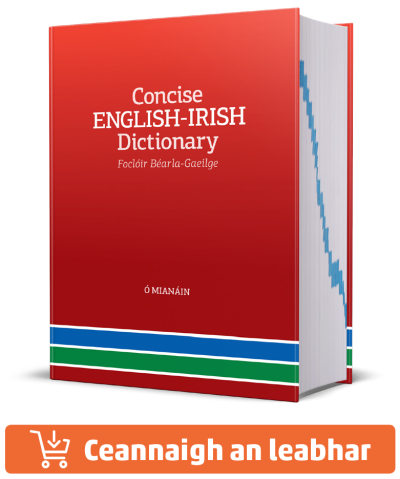Foclóir Gaeilge–Béarla
Ó Dónaill, 1977
An Foclóir Beag
Ó Dónaill & Ua Maoileoin, 1991
English–Irish Dictionary
de Bhaldraithe, 1959
Gramadach
Foghraíocht
hul(a)m hal(a)m
hula
hulach halach
húlamaboc
hulúiste huláiste
húm
húmas
hup
húpú
hurá
húradh
hurais
hurdaí-gurdaí
hurla burla
hurlamaboc
hurta harta
hurú
husá
husáireacht
husár
huscaí
hustaeir
CUARDACH DROIM AR AIS
IN FOCLÓIR GAEILGE—BÉARLA
ABAIRTÍ
IN FOCLÓIR GAEILGE—BÉARLA
Deir sé go bhfuil ocras air, he says he is hungry.
Dá mbeadh tart, ocras, laige, ar dhuine, if one were thirsty, hungry, weak.
Is fearr bothán ~ ná caisleán gortach, a cabin with plenty of food is better than a hungry castle.
Tá ~ ina ghoile le hocras, he is ravenously hungry.
An bhfuil ocras ort? Tá ~. Are you hungry? Yes, indeed.
Súil chíocrach, hungry look.
~ a chur ar dhuine, to make s.o. hungry for something.
Bíonn ocrach ~, a hungry person eats ravenously.
Ocras, tuirse, codladh, a chur ar dhuine, to make s.o. hungry, tired, sleepy.
Dá mbeadh gan ocras a bheith orm, if I were not hungry.
Bia don ocrach, food for the hungry.
~ an ocrais, hungry expression.
Bhí an t-ocras ag ~im liom, I was beginning to feel hungry.
Ghabh tart, ocras, é, he got thirsty, hungry.
Bhí ~ air chun a dhinnéir, he was hungry for his dinner.
Ní chuimhníonn cú ~ ar a coileán, ‘a hungry hound does not remember its whelp,’ necessity knows no law.
Sliabh, aer, ~, hungry mountain, air.
Talamh ~, hungry land.
Áit ghortach, hungry, barren, place.
Bia don ghortach, (to give) food to the hungry.
D’alp siad é leis an ocras a bhí orthu, they were so hungry that they gulped it down.
Níor ~ siad ocras orthu féin, they didn’t let themselves go hungry.
Bia don ~, food for the hungry.
1. Bheith ~, to be hungry.
Páistí ~a, hungry children.
Tá cuma ~ air, he has a hungry look.
Talamh ~, hungry soil.
Tír ~, a hungry land.
1. ~ a bheith ort, to be hungry.
Chuir sé ~ orm, it made me hungry.
Lucht ocrais, hungry people; miserable lot.
Dá mbeadh ocras orthu ní bheidís ag ~ ar a gcuid, if they were hungry they wouldn’t grumble at their food.
